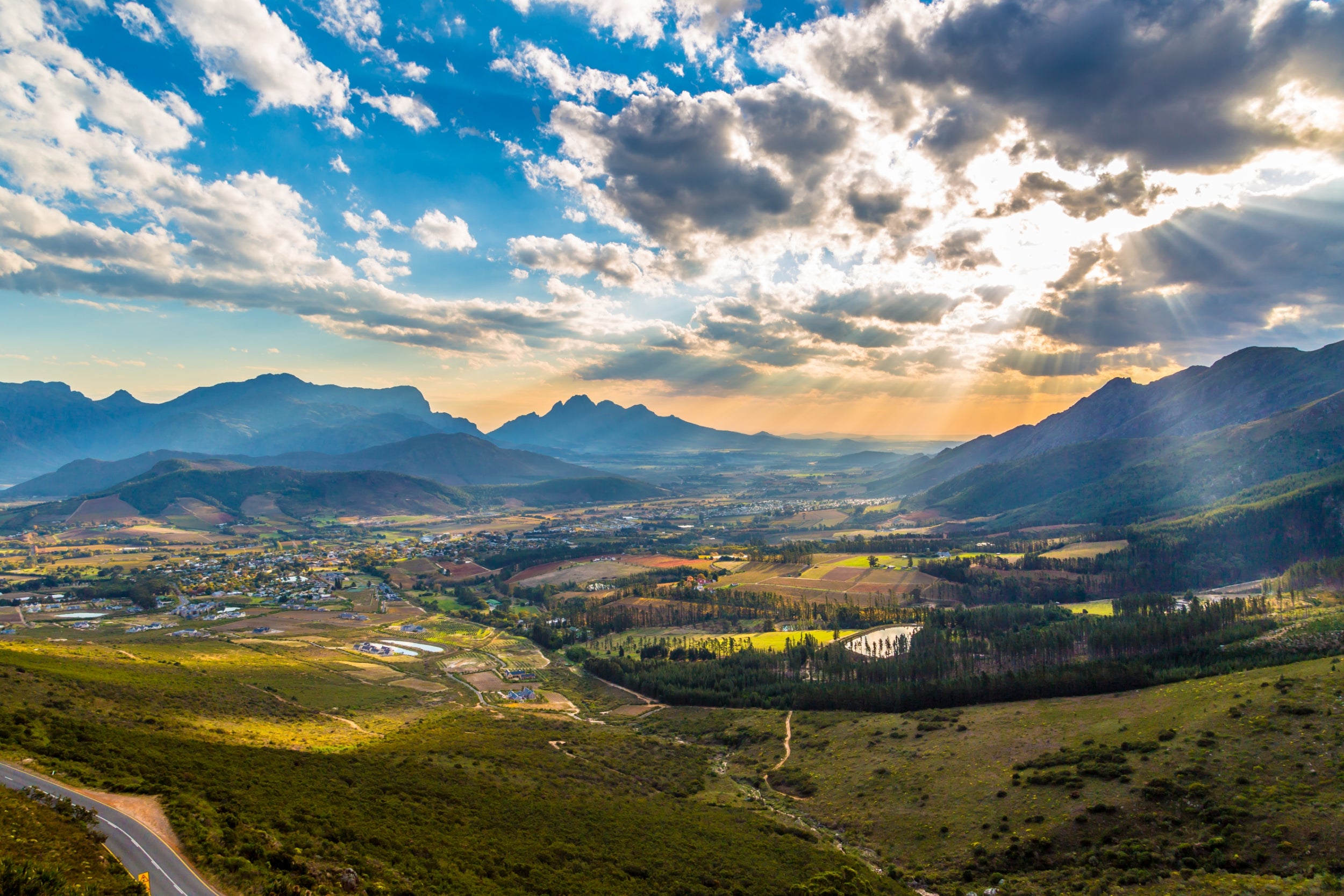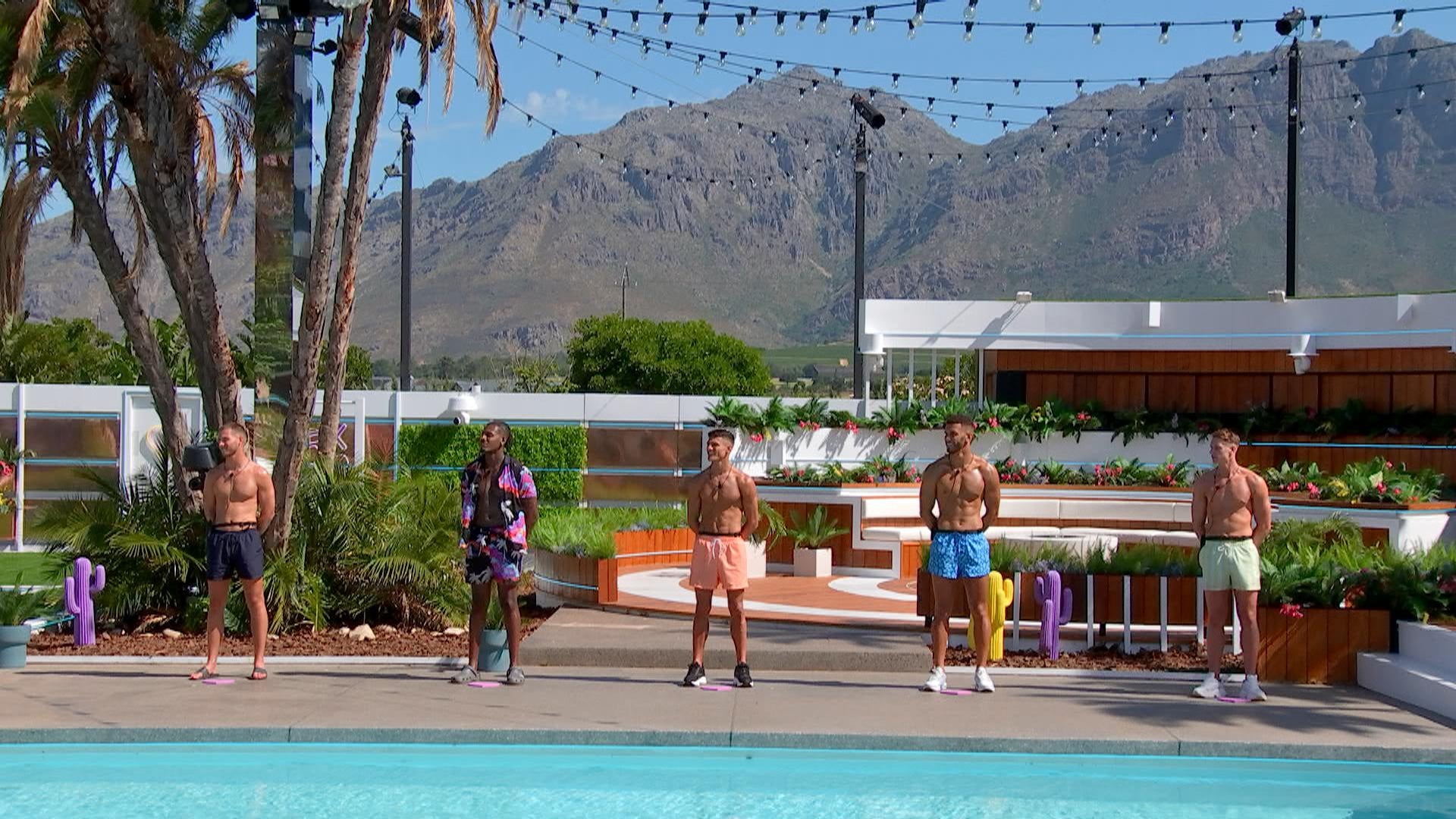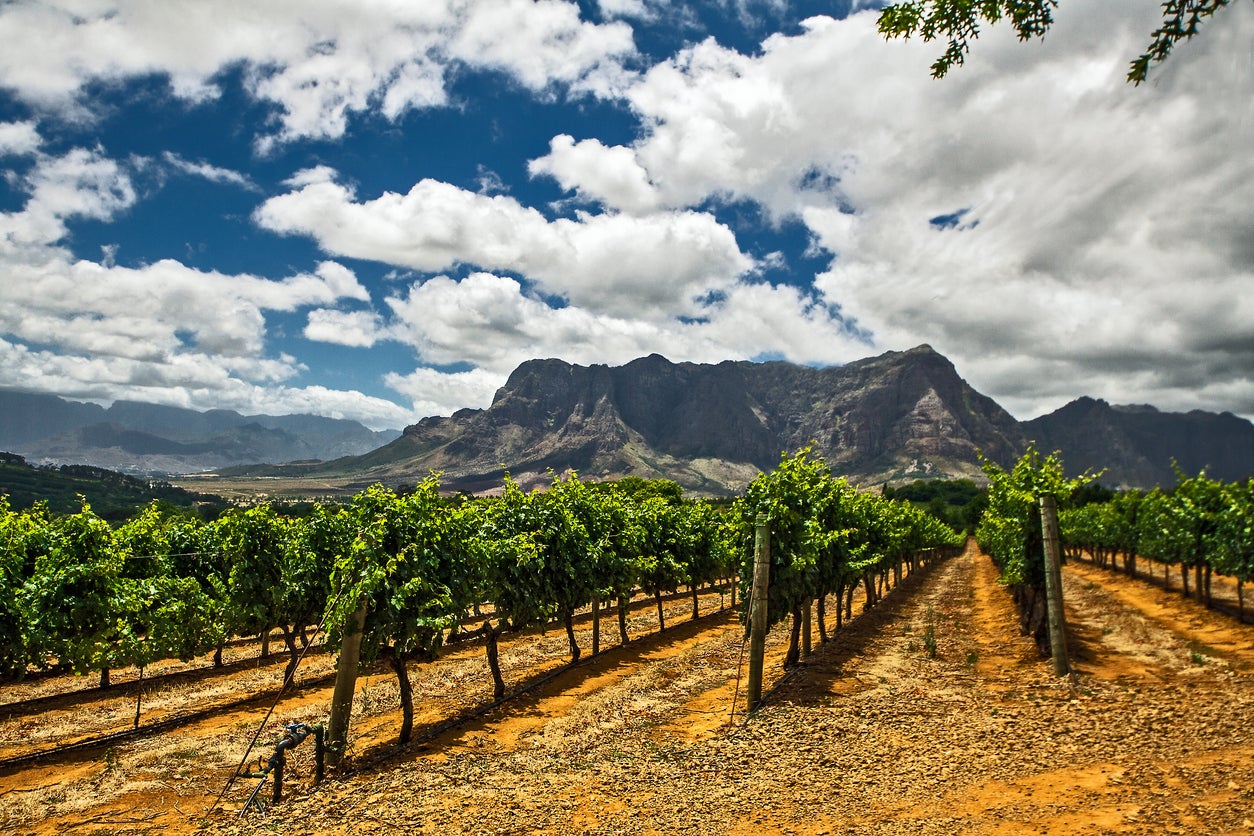Your type on paper: How to visit Franschhoek like a Love Islander
The new series is selling us on the glamour of a South African winter sun break; Melissa Twigg shares how to explore the islanders’ locale in style

Cape Town is an apt setting for Love Island. Much like the contestants themselves, it is almost absurdly photogenic. And yes, you can quibble and say it’s not exactly an island, but there is certainly a lot to love – not least, the vine carpeted valleys that sweep through the winelands and the delightful hotels and restaurants that dot them.
The best in show is Franschhoek, the jewel-like white clapboard town an hour’s drive from Cape Town where the islanders’ villa is located. The name means “French corner” in Afrikaans – rather fitting as it is now home to a number of hotels and restaurants that are good enough to rival much of France when it comes to glamour, taste and sheer prettiness.
Leader of the pack is Babylonstoren. Ex-magazine editor – and gardener extraordinaire – Karen Roos, is the reason this 500-acre Cape Dutch wine and fruit farm has become one of the loveliest places to spend the day, or night, in the Cape. First, the grounds: an attraction in their own right, filled with plum trees, banks of hydrangeas, towering cactuses and rippling streams bordered by wild flowers. Then the wine tasting, which costs about £2pp and takes place in a light, airy converted barn with a choice of five wines, plus the option of charcuterie and vegetable platters (£10 each).

Much like its sister establishment in Somerset, the Newt, the restaurant Babel takes most of its produce from the garden, which means that even a simple green salad is full of more flavours than most complex meals. “We start preparing your food long before you arrive,” says Maranda Engelbrecht, who wrote The Babel Cookbook. “Ingredients are everything and, here in the Cape, we have the best in the world.”
As of this year, a new spa has also been added to the Babylonstoren portfolio with a long pool that is set under the shadow of the Drakenstein Mountains, plus a hammam and some of the best treatments on the Cape Peninsula. To sleep, it’s hard to beat the 12 cottage suites, which have thoughtful touches such as fynbos in the bathroom and bookshelves filled with South African literature.
Also found in the famously beautiful Franschhoek Valley is Boschendal, which, with its 17th-century main house, shady oak trees, lakes, and picnics on the lawn, is one of the prettiest of the local wine farms. But like all great beauties, it wants to be known for more than just its looks – prompting celebrated local chef Christiaan Campbell to revamp The Werf restaurant menu to include serious gourmet options such as braised beef short-rib, or duck breast with pulled duck leg (mains around £12). Move on to a wine-tasting in the afternoon in the renovated barn (£3pp), then spend the night in historic Rhodes Cottage, designed by British building maestro Herbert Baker.

A bit further down the road is Rustenburg, with tumbling flower beds, lily-ponds, 200-year-old labyrinths, and pergolas covered in roses, clematis and foxgloves. If it weren’t for the brilliant sunshine and craggy-mountain backdrop, you’d think you were in the grounds of an English stately home. But this is Rustenberg, the grandest of the grande dame Cape Dutch houses (worth a tour whether you drink or not), and home to some of the prettiest gardens in the winelands. Somewhat jarringly, the wine tasting (£2pp) takes place in a very modern, though bright, building next to the gardens – be sure to try the matured chardonnay, which is buttery and rich.
For any Love Islanders who make it through to the other side with their relationship in tact, there is a charmingly rustic romantic meal to be had at De Meye – a hugely popular restaurant that only opens Friday to Sunday for an unfussy, three-course set lunch (£19) made almost entirely from ingredients in the garden. Think radicchio salad with pear, pickled shallots and Karoo cheese, or 15-hour-cooked grass-fed beef flat rib. Wooden tables and chairs are set in the dappled light of the oak trees and guests are encouraged to kick off their shoes, bury their toes in the grass, and drink a bottle or two of the refreshing chenin blanc.
The closer you get to the town, however, the more glamour you’ll find. On the outskirts is Chef’s Warehouse, which offers superlative tasting menus for meat eaters, pescatarians, vegetarians or vegans. For the former there are thin slices of delicate raw beef with oyster mayonnaise and venison with roast pears and squid; for the latter, truffle-laced potato salad (and those are just the starters). Offering a culinary journey of seven large sharing plates, this beautiful garden-based restaurant has guests groaning with pleasure within minutes of picking up their forks.

On Franschhoek’s Main Road is Le Quartier Francais – a restaurant that has consistently been in the San Pellegrino Top 50 as one of the first spots in the country to focus on traditionally South African haute cuisine. Now, it offers plush rooms to spend the night for any foodies who wish to crash where they eat. Further along is Foliage, the venture by Chris Erasmus, a Quartier Francais protégé who is getting rave reviews for his imaginative take on local cuisine – think black truffle and biltong risotto and ostrich and kidney pie.
If the Love Island winners want to stick around to bask in their glory, however, it’s hard to beat La Cotte. A gem of a hotel with a long shady pool, a restaurant with views out to the mountains and deep comfortable beds in beautifully decorated rooms, it’s the ideal spot to get to know each other away from the glare of the nation, but under the glare of the hot South African sun.
Join our commenting forum
Join thought-provoking conversations, follow other Independent readers and see their replies
Comments
Bookmark popover
Removed from bookmarks